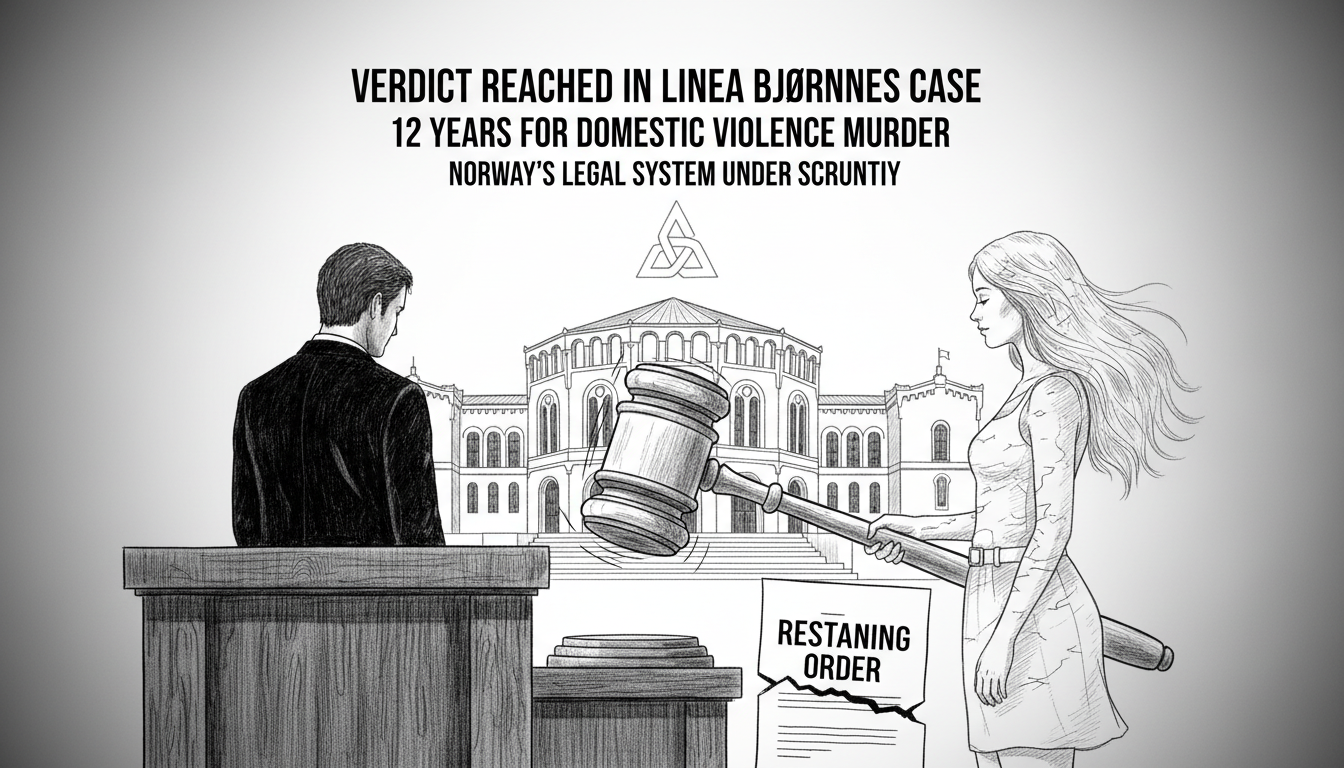A 35-year-old man received a 12-year prison sentence for the killing of 20-year-old Linea Bjørnnes in Trøndelag District Court. The unanimous verdict followed two weeks of proceedings where the defendant maintained his innocence despite overwhelming evidence.
The prosecution successfully argued the man acted with intent when he caused Linea's death last December. Medical experts determined the young woman died from oxygen deprivation to the brain. Witness testimony revealed the accused had placed a scarf between Linea's teeth and put tissue paper in her mouth during the fatal incident.
This case highlights Norway's strict approach to domestic violence cases. The convicted man had previous restraining orders against him involving Linea, though earlier charges for threats and assault were dropped due to questions about his mental capacity at those times. The court ultimately rejected defense arguments about diminished responsibility in this instance.
Norwegian legal experts note this sentencing falls within typical ranges for murder convictions where premeditation isn't established but intent is proven. The country's justice system emphasizes both punishment and rehabilitation, with sentences often shorter than international observers might expect but with strong focus on reintegration programs.
The tragedy has sparked renewed discussion about Norway's handling of repeat domestic violence offenders. Neighbors in the Stjørdal apartment building where both lived reported knowing about previous conflicts between the two. Community members now question whether warning signs were adequately addressed.
Linea's family described their relief at the verdict while mourning their loss. They remembered Linea as a vibrant young woman with her whole life ahead of her. The case serves as a sobering reminder about the deadly potential of domestic violence situations that escalate over time.
What happens next in Norway's justice system? The convicted man can appeal the verdict within specified time limits. If the sentence stands, he'll serve his term in one of Norway's rehabilitation-focused prisons. The case may also prompt policy reviews regarding how authorities handle repeated domestic violence complaints involving the same individuals.

